Adopting a senior dog can be one of the most rewarding decisions for pet lovers. Older dogs often bring a level of calmness and maturity that makes them excellent companions, especially for those looking to enjoy a peaceful coexistence. Senior dogs tend to be calmer and more relaxed compared to younger dogs, which means their new families can also benefit from a more tranquil household environment.
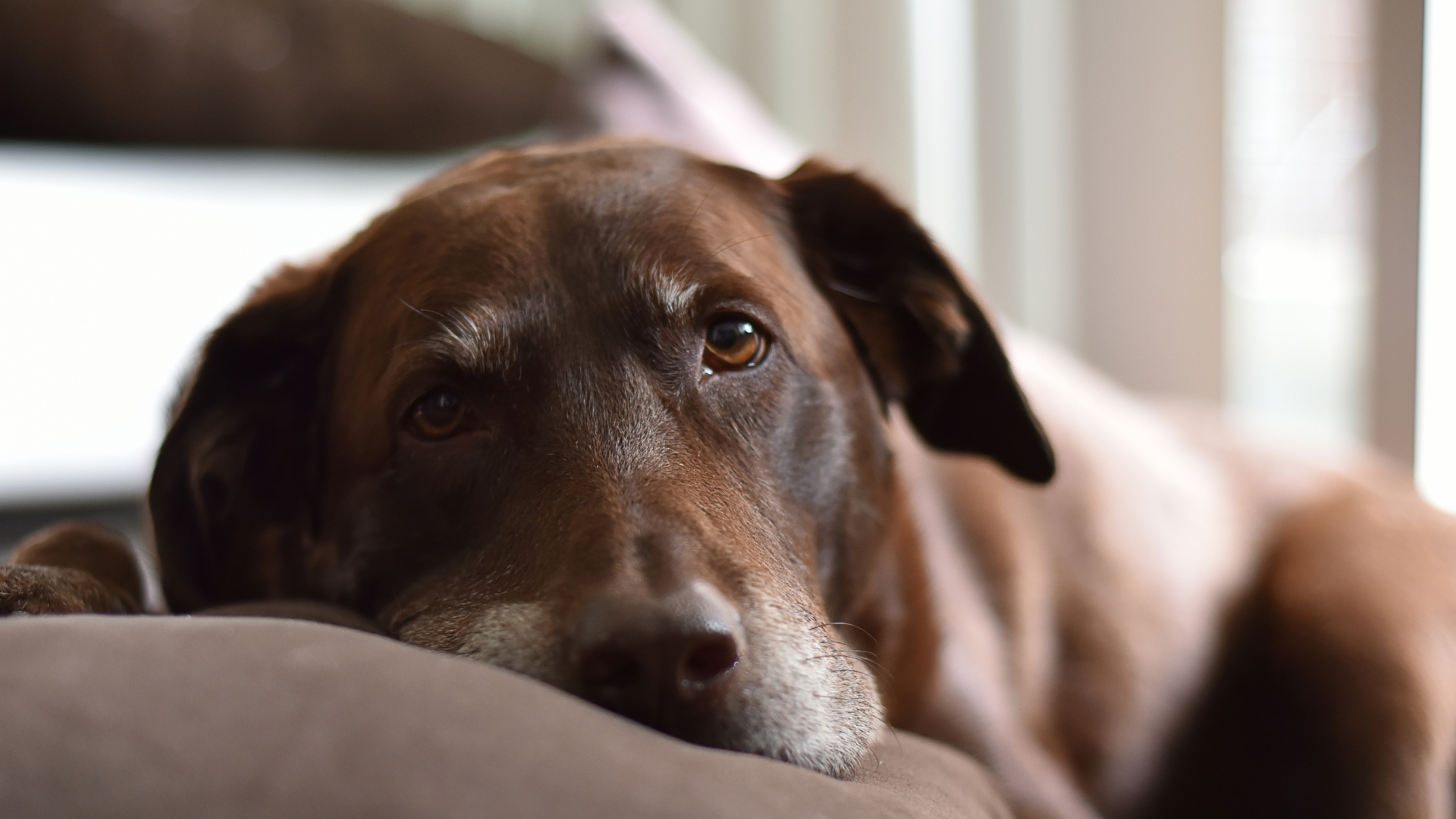
The benefits of adopting a senior dog extend beyond just their temperament. These dogs often come with the added advantage of being house-trained and less likely to engage in destructive behaviors. This is particularly advantageous for new pet parents who may not have the time or resources to train a puppy. Additionally, many older pets have a deep appreciation for the love and care they receive, forming strong bonds with their new owners.
Providing care for senior dogs involves ensuring they have easy access to essentials like food, water, and comfortable resting places. It's essential to use items designed for their needs, such as nonslip food bowls and ramps for easier access to litter boxes or beds. Adopting a senior dog not only offers a loving home to an older pet but also enriches the adopter's life in numerous ways, from companionship to the joy of giving an older animal a second chance.
Assessing the Needs of Senior Dogs
As dogs age, their needs change significantly, necessitating specialized attention in various aspects such as health, nutrition, and mobility. Understanding these requirements will help ensure a comfortable and high-quality life for senior dogs.
Health Concerns and Veterinary Care
Senior dogs are prone to various health issues, including arthritis, diabetes, and heart diseases. Regular veterinary check-ups are crucial to detect early signs of these conditions. A comprehensive health exam typically includes blood tests, fecal tests, and a rectal exam.
Veterinarians might recommend bi-annual visits to monitor any changes closely. Medications and supplements can help manage chronic conditions. Owners should also be vigilant for changes in behavior, appetite, or physical activity, as these could indicate underlying health problems. It's important to discuss any observations with a veterinarian promptly.
Nutrition and Dietary Requirements
Nutritional needs of senior dogs differ from those of younger dogs, prioritizing easily digestible proteins and lower calories to prevent obesity. Foods high in omega-3 fatty acids, like fish, aid in maintaining healthy skin and brain function. Wet food can be beneficial due to its high moisture content, which helps prevent dehydration.
Homemade options, such as bone broth and pumpkin, can support joint health and digestive regularity. Ensure the diet is balanced with necessary vitamins and minerals. Consulting a veterinarian or a pet nutritionist can help tailor a diet plan that meets the specific needs of an aging dog.
Mobility and Accessibility
Mobility issues in senior dogs can result from arthritis or hip dysplasia, making it essential to adapt their living space. Providing orthopedic beds to ease joint pain and non-slip rugs to prevent falls can enhance comfort and safety. Ramps or steps can help dogs access furniture or cars without strain.
Regular, gentle exercise is important to maintain muscle mass and joint flexibility. Short, frequent walks are more beneficial than extended periods of activity. Supplements like glucosamine and chondroitin can support joint health. Keeping an eye on weight is crucial; excess weight can exacerbate mobility issues.
Understanding the specific and evolving needs of senior dogs in these areas helps ensure they remain healthy and comfortable in their golden years.
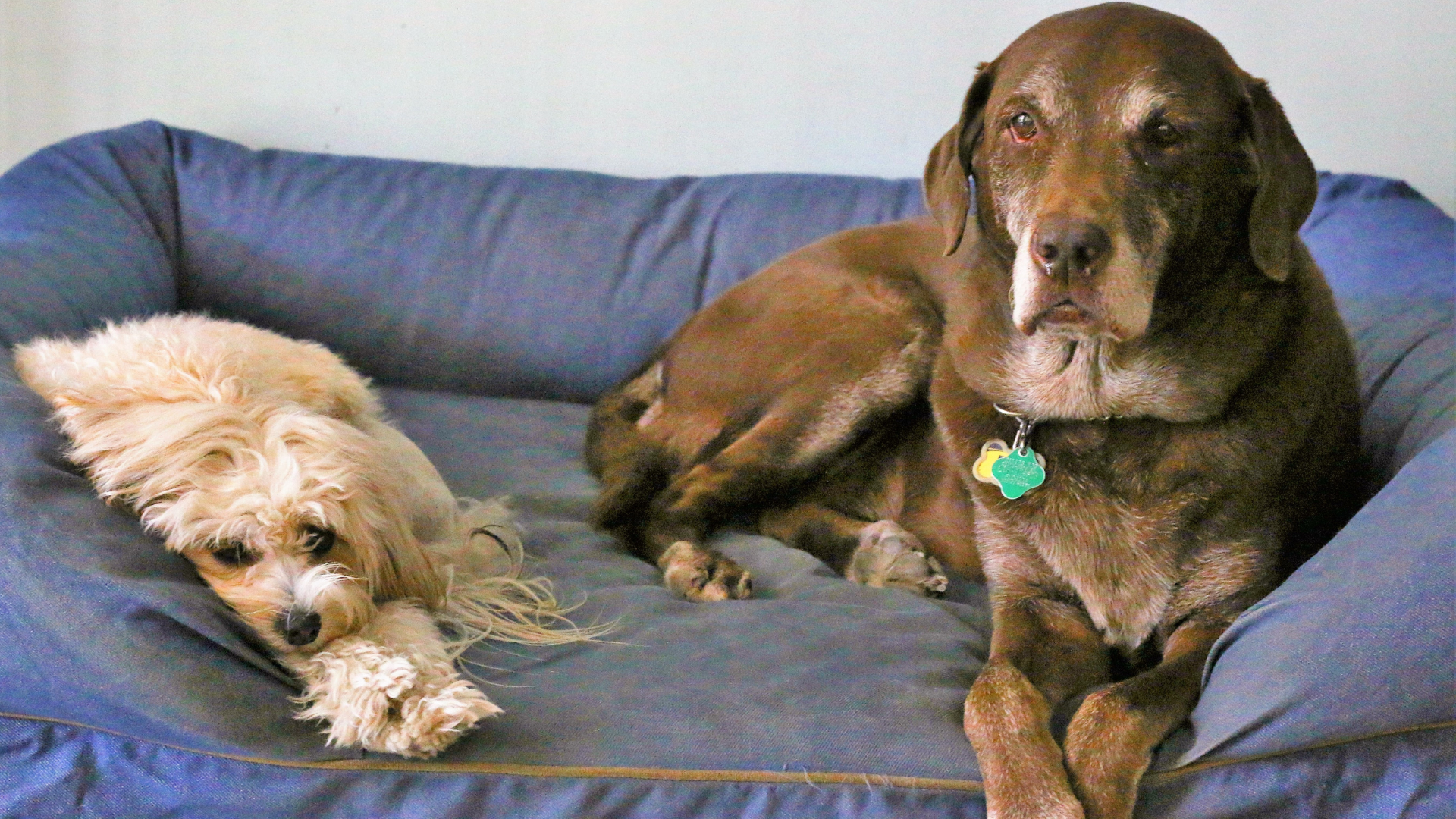
The Adoption Process
Adopting a senior dog involves a few key steps to ensure a smooth transition for both the pet and the new owner. These steps include selecting the right dog based on specific needs and understanding the dog's behavior and temperament.
Choosing the Right Senior Dog
Selecting the right senior dog means considering a few key factors. Visiting animal shelters or rescue organizations is a good start. Here, potential adopters should interact with different breeds to see which one fits their lifestyle. Size, activity level, and specific breed traits are vital considerations.
Senior dogs like Golden Retrievers might be more laid-back and easy-going, while smaller breeds like Dachshunds may require less space. Before making a decision, inquire about the dog's medical history. Senior dogs may need more frequent veterinarian visits and medications, as noted by Adopt a Pet.
Also, consider whether the dog has lived with children or other pets. Understanding this past helps ensure they integrate well into a home. Compatibility with the family's environment is crucial for a successful adoption.
Understanding Behavioral Signs
Understanding a senior dog's behavior involves careful observation. Senior dogs often show more predictable behaviors than puppies. They tend to be calmer and may settle into routines easily. When visiting a shelter, observe how the dog interacts with staff and other animals.
Fixed patterns of behavior or a calm temperament may indicate a good fit for homes with younger children. If a dog shows signs of anxiety or aggression, it's vital to understand these triggers. Many shelters offer a trial period, like the two-week period from Senior Dog Rescue of Oregon, to ensure the dog adapts well to the new environment.
Look for signs like tail wagging, relaxed body posture, and responsiveness to commands. These indicate comfort and adaptability. If concerns arise regarding behavior, consulting with shelter staff or a veterinarian is advisable. They provide insights tailored to the dog's history.
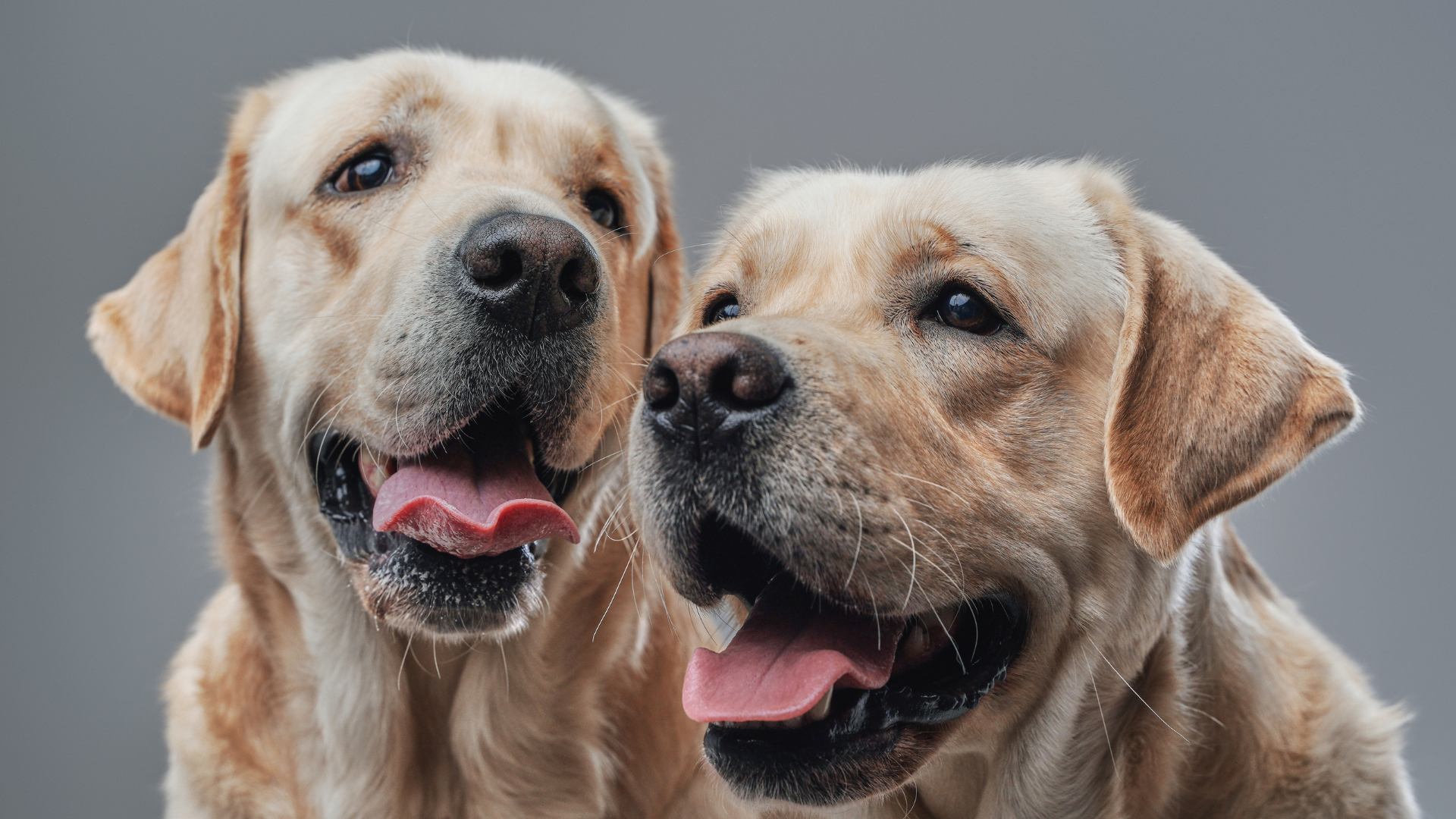
Creating a Safe and Comfortable Environment
Creating a safe and comfortable environment for senior dogs involves crucial home adjustments and establishing a consistent routine. These changes help accommodate their physical and cognitive needs, enhancing their overall well-being.
Home Adjustments for Older Dogs
Older dogs often face mobility challenges due to arthritis or other joint issues. Introducing ramps can ease their access to furniture or cars, reducing strain on their joints. Gates are beneficial to restrict access to stairs, preventing potential falls.
Orthopedic dog beds offer excellent support and relief from aches, especially for dogs with arthritis. Elevated bowls can help reduce neck strain during feeding time. Ensuring that the flooring is non-slip is also critical to avoid slips and falls.
Creating a quiet and calm space is essential, as senior dogs might be more prone to confusion or anxiety. This involves minimizing loud noises and providing a consistent, familiar environment to help them feel secure and relaxed.
The Importance of Routine
Routine is vital for senior dogs, providing them with a sense of stability and security. Regular feeding times help in maintaining digestive health, while consistent bathroom breaks reduce accidents and discomfort.
Daily walks are necessary but should be shorter and more frequent. This not only helps with their mobility but also provides mental stimulation. Regular veterinary visits are crucial to monitor health conditions and catch any issues early.
Incorporating mental stimulation activities, such as puzzle toys or gentle training sessions, can keep their minds sharp. Routine also extends to grooming, ensuring their coats and nails are kept in good condition to prevent any related health issues. Ensuring predictability in their day-to-day life can significantly reduce stress and anxiety.
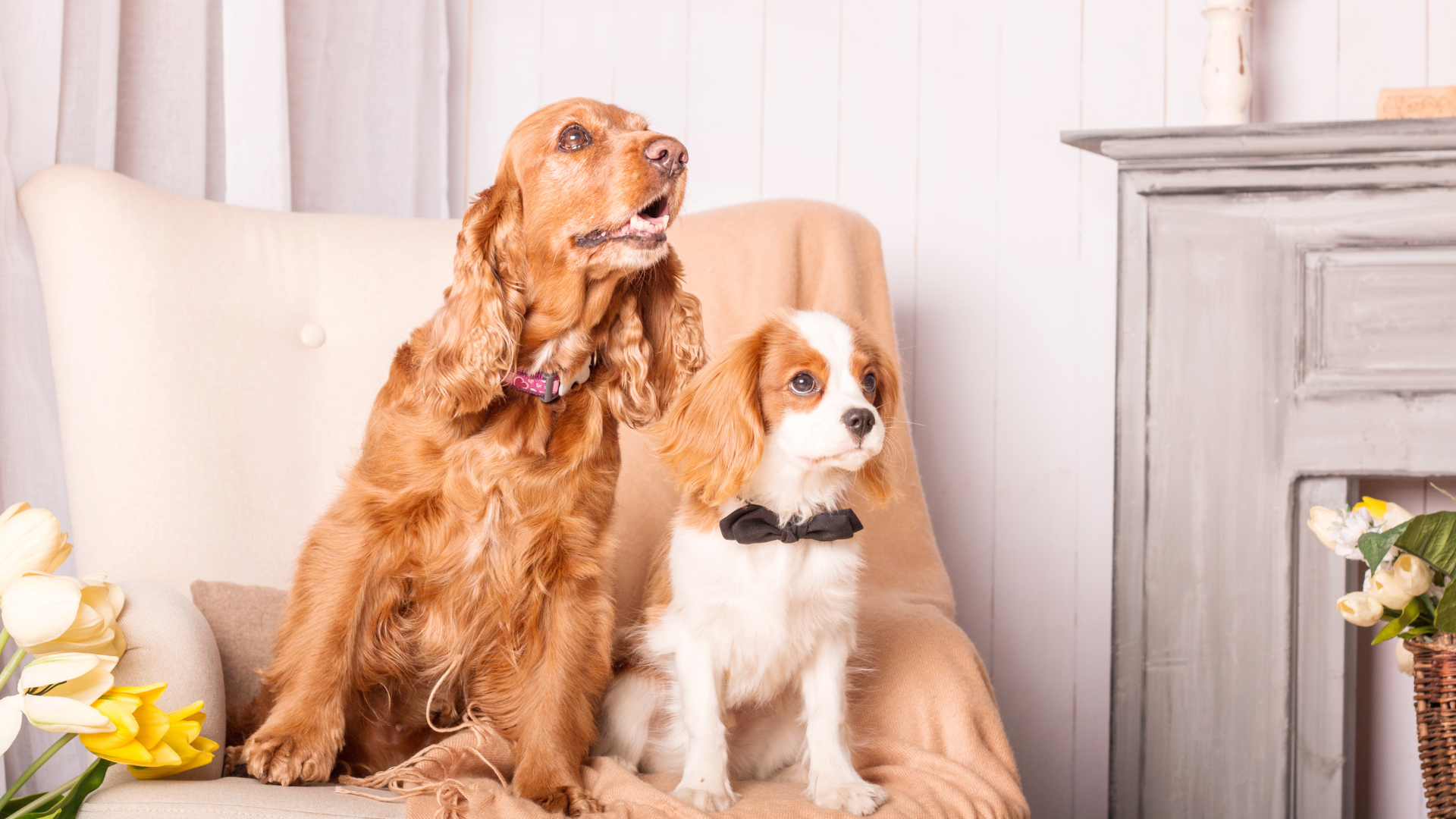
Health Management and Wellness
Senior dogs require special attention to their health and wellness. Key areas include monitoring and treating common diseases and ensuring proper exercise and weight maintenance.
Monitoring and Treating Common Diseases
As dogs age, they are more prone to health problems such as arthritis, diabetes, and kidney disease. Regular veterinary check-ups are crucial. Annual blood tests can detect early signs of these conditions.
Medication management is often necessary. For instance, arthritis can be treated with anti-inflammatory drugs or joint supplements like glucosamine.
Diabetes requires insulin therapy and a strict diet. Kidney disease, common in older dogs, might need special diets and medication to maintain renal function. Keep a close eye on symptoms like increased thirst, weight loss, or lethargy, and consult your vet immediately if they appear.
Exercise and Weight Maintenance
Maintaining an active lifestyle is essential for senior dogs. Although their energy levels decrease, regular, gentle exercise helps manage obesity and supports joint health. Short, frequent walks are more beneficial than long, strenuous exercise.
Monitoring your dog's weight through regular vet visits helps prevent obesity-related diseases. Obesity can exacerbate arthritis and lead to other complications like heart disease and diabetes.
A balanced diet tailored for senior dogs is crucial. These diets often have adjusted calorie content to prevent weight gain and added nutrients to support joint health. Consult your vet for dietary recommendations specific to your dog’s needs.
Social and Mental Well-being
Caring for the social and mental well-being of senior dogs involves ensuring mental stimulation and fostering social interactions with both humans and other pets. A focus on these aspects can enhance their quality of life and overall happiness.
Training and Mental Engagement
Training a senior dog is just as important as training a younger one. Mental engagement helps stave off cognitive decline and keeps their minds sharp. Positive reinforcement techniques, such as treats and affection, work well. Short, simple training sessions are ideal for older dogs as they may tire more easily.
Interactive toys and puzzle feeders provide excellent mental stimulation. These tools can keep senior dogs engaged for longer periods. Rotating toys to maintain interest is another effective strategy.
Incorporating new tricks or commands into their routine can be beneficial. Learning new tasks keeps their minds active and helps strengthen the bond between the dog and their human companion.
Interactions with People and Other Pets
Social relationships with people and other pets play a significant role in a senior dog's mental well-being. Regular interaction with family members helps them feel loved and valued. Daily playtime and grooming sessions are simple ways to ensure they receive ample affection.
Introducing a senior dog to other pets should be done gradually. This helps prevent stress and encourages positive relationships. Supervised playdates or walks with other dogs can be enriching experiences.
Creating a routine that includes social activities can provide structure and comfort for senior dogs. Having consistent times for meals, walks, and play ensures they know what to expect, reducing anxiety and promoting a sense of security. For more information on fostering social connections, visit Social Well-Being for Seniors.
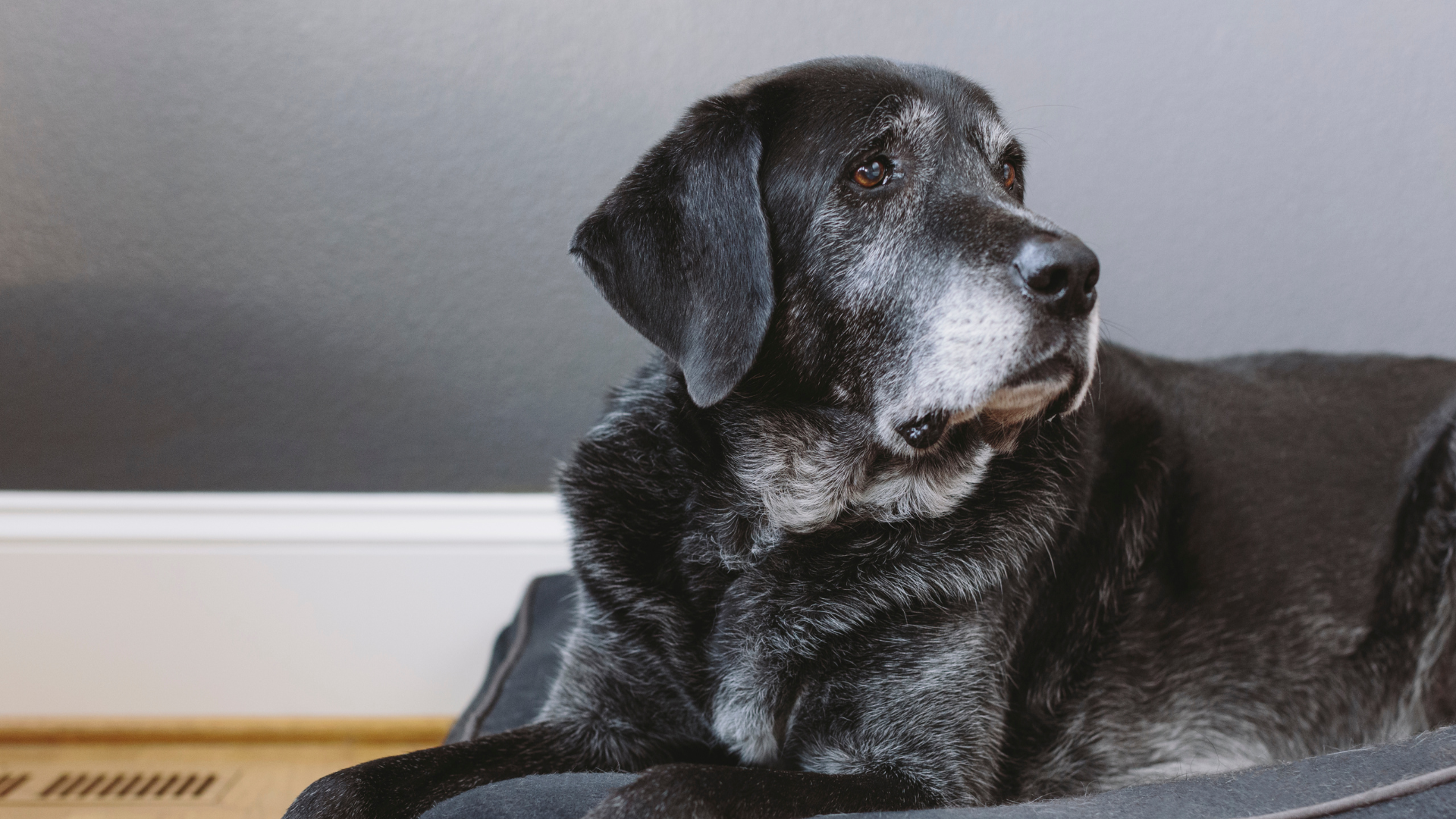
Frequently Asked Questions
Adopting a senior dog offers unique benefits and requires special considerations. Proper preparation, understanding of the adjustment period, and maintaining health are key factors.
- How should I prepare my home before adopting a senior dog?
- Ensure a senior dog-friendly environment by keeping floors non-slippery and providing easy access to favorite spots. Create a quiet space for the dog to relax. Remove any hazards that could cause injury. Consider installing ramps if stairs are difficult to navigate.
- What are the benefits of adopting an older dog?
- Older dogs are typically more relaxed and have established temperaments. They are often house-trained and have basic obedience skills. Senior dogs can form deep bonds and offer companionship with a lower energy demand than younger dogs. Their calmness can be ideal for many adopters.
- How long does it typically take for a senior dog to adjust to a new owner?
- The adjustment period can vary, often taking a few weeks to a few months. Patience and consistency in routines help in the transition. Each dog’s past experiences influence how quickly they adapt, but many senior dogs show loyalty and affection relatively quickly.
- What essentials should I purchase before bringing an adopted senior dog home?
- Purchase a comfortable bed, easy-to-digest food, and appropriate feeding bowls. Consider dental chews and joint supplements. A harness and leash, along with hygiene products like brushes and mild shampoo, are necessary. Provide toys that are gentle on aging teeth.
- What are some tips for helping a senior dog adapt to a new home?
- Maintain a consistent schedule for feeding and walks. Introduce them gradually to new areas of the house. Use positive reinforcement to encourage good behavior. Be patient and give the dog plenty of time to adjust. Providing constant companionship helps build trust.
- How can I support the health and well-being of an adopted senior dog?
- Regular veterinary check-ups are crucial, ideally every six months. Maintain a balanced diet tailored to their age and health conditions. Engage in moderate exercise suitable for their physical capabilities. Ensure mental stimulation through gentle play and interaction.




